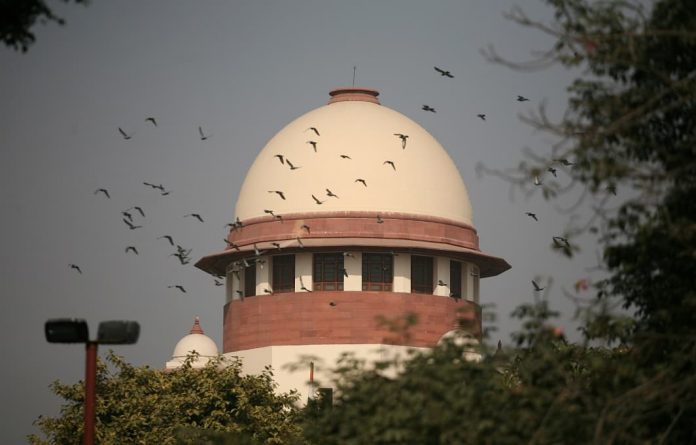New Delhi: The Supreme Court has observed that courts assess the extent of disabilities taking into account the realities of life, rather than adopting a stereotypical or myopic approach. The observations were made while hearing an appeal against a Delhi High Court order that reduced the amount of compensation awarded to the appellant for loss of future prospects, under the Motor Vehicles Act.
A three-judge Bench of Justices L. Nageswara Rao, Krishna Murari and S. Ravindra Bhat held that the High Court clearly erred in holding that compensation for loss of future prospects could not be awarded. In addition to loss of future earnings, based on a determination of the income at the time of accident, the court found the appellant entitled to compensation for loss of future prospects at 40 percent.
The apex court observed that while determining compensation, the courts should be mindful that a serious injury not only permanently imposes physical limitations and disabilities but too often it inflicts deep mental and emotional scars upon the victim. The attendant trauma of the victim having to live in a world entirely different from the one she or he is born into, as an invalid, and with degrees of dependence on others, robbed of complete personal choice or autonomy, should forever be in the judge’s mind, whenever tasked to adjudge compensation claims.
According to the court, severe limitations inflicted due to such injuries undermine the dignity, which is an intrinsic component of the Right to Life under Article 21 of the individual, deprives the person of the essence of the right to a wholesome life which she or he had lived. If courts nit-pick and award niggardly amounts oblivious of these circumstances, there is resultant affront to the injured victim.
The Court also stated that courts should not adopt a stereotypical or myopic approach, but instead, view the matter taking into account the realities of life, both in the assessment of the extent of disabilities, and compensation under various heads. In the present case, the loss of an arm, in the opinion of the court, resulted in severe income earning impairment upon the appellant. As a typist/data entry operator, full functioning of his hands was essential to his livelihood. The extent of his permanent disablement was assessed at 89 percent, but the High Court halved it to 45 percent on an entirely wrong application of some ‘proportionate’ principle, which was illogical and is unsupportable in law.
The court modified the impugned judgment to the sum of Rs 19,65,600 to be substituted in place of the amount of Rs 7,77,600, considering the enhancement towards loss of earning capacity and future prospect.
Facts: The appellant before the Supreme Court has challenged the decision of the High Court of Delhi reducing the amount of compensation awarded to him for loss of future prospects. The appellant in 2012 was injured in a motor accident while travelling to Hapur as a passenger in a bus, due to rash and negligent act of driver of another bus which tried to overtake the appellant’s bus.
The appellant claimed compensation, impleading the owner, the driver of the vehicle, and the insurer. During the course of proceedings before the Motor Accident Claims Tribunal, he applied for ascertainment of his disability which was found to be 89 percent.
He was working as a data entry operator/typist at Tis Hazari Courts and earned an amount of Rs 12,000 per month prior to the injury. He applied for grant of compensation under the Motor Vehicles Act, 1988, and claimed a sum of Rs 50 lakhs with interest at the rate of 12 percent per annum against the driver of the bus, owner of the vehicle and the insurer.
Read Also: Jagjit Pavadia: A Sterling Job
The Motor Accident Claims Tribunal held that the appellant had suffered serious injuries due to rash and negligent driving of the respondent and granted compensation. The Delhi High Court reassessed the amount of compensation awarded and reduced the amount awarded for loss of future prospects.
-India Legal Bureau


